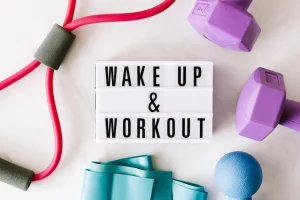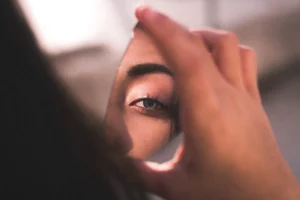How to Get Rid of Hiccups: Effective Techniques and Remedies


How to Get Rid of Hiccups: Effective Techniques and Remedies


Introduction
Hiccups can be an annoying and involuntary spasm of the diaphragm muscle that causes a sudden intake of breath, followed by a distinctive “hic” sound. While hiccups are usually harmless and resolve on their own, they can be disruptive and uncomfortable. If you’re looking for ways to get rid of hiccups quickly and effectively, this article provides a comprehensive guide with step-by-step techniques and remedies that you can try. So, let’s dive in and discover how to put an end to those pesky hiccups!
Table of Contents
- Understanding Hiccups
- Common Causes of Hiccups
- Quick Fixes for Hiccups
- Holding Your Breath Technique
- Drinking Water Technique
- Breath Control Technique
- Home Remedies for Hiccups
- Drinking Water Upside Down
- Eating a Spoonful of Sugar
- Sipping Cold Water or Ice Chips
- Applying Gentle Pressure on Eyebrows
- Lifestyle and Dietary Changes
- Medical Interventions for Chronic Hiccups
- When to Seek Medical Attention
- Conclusion
1. Understanding Hiccups
Hiccups are involuntary contractions or spasms of the diaphragm muscle, which is responsible for controlling the breath. These spasms cause a sudden closure of the vocal cords, resulting in the “hic” sound. Hiccups can occur for various reasons, including eating or drinking too quickly, consuming carbonated beverages, sudden temperature changes, stress, excitement, or underlying medical conditions.
2. Common Causes of Hiccups
Before diving into the techniques and remedies, it’s important to understand some common causes of hiccups. Identifying the triggers can help you prevent hiccups in the first place. Common causes include:
- Eating or drinking too quickly
- Consuming carbonated beverages
- Eating spicy or hot foods
- Drinking alcohol
- Emotional stress or excitement
- Swallowing air while eating or drinking
- Sudden changes in temperature
3. Quick Fixes for Hiccups
If you’re experiencing a bout of hiccups and want immediate relief, here are three quick techniques you can try:
Holding Your Breath Technique
- Take a deep breath in.
- Hold your breath for as long as you comfortably can.
- While holding your breath, swallow a couple of times.
- Exhale slowly and gently.
Drinking Water Technique
- Take a glass of water.
- Bend forward slightly.
- Take small sips of water while tilting your head forward.
- Swallow the water slowly and deliberately.
Breath Control Technique
- Inhale deeply and hold your breath.
- Exhale slowly and gently while counting to ten.
- Inhale again and hold your breath for another count of ten.
- Repeat this cycle a few times until the hiccups subside.
4. Home Remedies for Hiccups
If the quick fixes don’t work, you can try these home remedies to alleviate hiccups:
Drinking Water Upside Down
- Fill a glass with cold water.
- Bend forward at the waist.
- Place your lips on the opposite side of the glass (where the base is).
- Tilt your head forward and drink the water from the opposite side of the glass.
- Drink in small sips until the hiccups stop.
Eating a Spoonful of Sugar
- Take a teaspoonful of granulated sugar.
- Place the sugar on your tongue.
- Let it dissolve slowly without chewing.
- Swallow the dissolved sugar.
Sipping Cold Water or Ice Chips
- Take small sips of cold water or chew on ice chips.
- Slowly swallow each sip or let the ice chips melt in your mouth.
- Continue sipping or chewing until the hiccups cease.
Applying Gentle Pressure on Eyebrows
- Use your fingertips to apply gentle pressure to the inner side of your eyebrows.
- Hold the pressure for a few seconds.
- Release and repeat the process a few times.
- This technique stimulates the vagus nerve, which may help stop hiccups.
5. Lifestyle and Dietary Changes
Making certain lifestyle and dietary changes may help reduce the frequency of hiccups. Consider the following tips:
- Eat and drink slowly to avoid swallowing air.
- Avoid carbonated beverages, spicy foods, and alcohol.
- Manage stress through relaxation techniques, such as deep breathing exercises or meditation.
- Maintain a healthy weight to minimize pressure on the diaphragm.
- Avoid sudden temperature changes, such as hot showers or exposure to cold air.
6. Medical Interventions for Chronic Hiccups
While hiccups usually resolve on their own, persistent or chronic hiccups may require medical intervention. If you’re experiencing hiccups that last longer than 48 hours or are interfering with your daily life, consult a healthcare professional. They may recommend the following treatments:
- Medications: Prescription medications can help regulate the diaphragm and reduce hiccup frequency.
- Nerve Block: In some cases, injecting an anesthetic into the phrenic nerve can provide temporary relief from chronic hiccups.
- Hypnosis: Hypnotherapy has been used as a complementary approach to treat chronic hiccups.
7. When to Seek Medical Attention
In most cases, hiccups are harmless and resolve on their own. However, seek medical attention if you experience the following:
- Hiccups that last longer than 48 hours
- Severe pain or discomfort accompanying hiccups
- Difficulty breathing or swallowing
- Vomiting or regurgitation
- Unexplained weight loss or loss of appetite
- Signs of dehydration
Conclusion
Hiccups can be a temporary nuisance, but with the right techniques and remedies, you can alleviate them quickly. Try the quick fixes like holding your breath or drinking water, and if those don’t work, experiment with home remedies like drinking water upside down or consuming a spoonful of sugar. Remember to make lifestyle and dietary changes to prevent hiccups in the future. If hiccups persist or become chronic, it’s essential to consult a healthcare professional for further evaluation and treatment options. By understanding the causes and employing effective techniques, you can bid farewell to hiccups and enjoy uninterrupted moments of comfort and peace.







